The lab: Behind the scenes of patient care
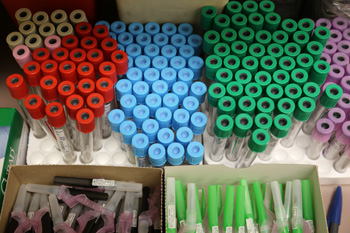
Highlighting our labs

Patients will likely never see the inside of a hospital lab, but it’s a department that’s critical to the care they receive; 75 per cent of medical decisions that physicians and care teams make are based on lab results. And in some cases, those results are needed quickly to make life-saving decisions.
St. Joseph’s Health Centre and St. Michael’s Hospital made the move to join labs in 2016, creating an integrated system that improves turnaround times for tests and allows clinical knowledge to be shared across both sites, improving quality of care for patients at both organizations.
“The faster we can get results to our physicians, the faster treatment can begin for our patients,” said Dawn-Marie King, integrated director of Laboratory Services. “That’s why it’s important that we’re able to process specimens as quickly as possible. Every minute counts to the people we serve.”
By the numbers
|
St. Joe’s and St. Michael’s process almost 8 million lab tests every year. The partnership allows for more on-site testing so that fewer samples have to be sent out to third party labs, saving time and reducing costs.
“By working together, we’ve been able to expand our areas of expertise and offer even more tests at the two sites, and we’re constantly looking for more opportunities to expand our services,” said King.
The integrated lab system has more than 400 staff members who work 24-7. The lab is split into five divisions that are broken down into a number of specialties, including:
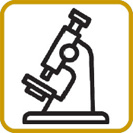 |
Biochemistry performs a wide variety of tests for diagnostic and therapeutic purposes in blood, urine and other body fluids. An integrated lab allows centres of excellence (i.e. the immunology lab at St. Joe’s and the specialty chemistry labs at St. Michael’s) to grow and excel for patient-centred care. | |
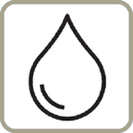 |
Transfusion medicine is responsible for providing blood and products for transfusion. If a patient requires a transfusion because of surgery, injury or disease, donated blood is added to his or her own blood. | |
 |
Hematology analyzes blood cells for disorders such as leukemia, anemia and possible infection. They provide a complete picture of a patient’s blood, including a blood count. They also investigate bleeding disorders by analyzing how quickly blood clots, monitor patients taking anticoagulants and analyze other types of body fluids, such as joint fluids. | |
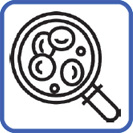 |
Microbiology analyzes specimens from the body (such as urine or blood) to look at bacteria, fungi and viruses that might be present, and tests the effectiveness of antibiotics against bacteria in the samples to allow doctors to effectively treat infections. The lab also provides support to the infection control program by screening for multi-resistant organisms and examining how infections spread throughout the hospital. | |
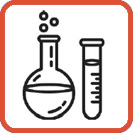 |
Pathology examines samples from the body for diagnosis of diseases such as cancer. The various tests performed on tissue (histology) and body fluids (cytology) in pathology enables the pathologist to make a diagnosis that will indicate to the clinician the proper course of patient treatment. Pathologists also perform autopsies to determine the cause of death. | |
 |
Molecular biology applies DNA and RNA detection techniques to the diagnosis, prognosis and targeted therapy of various diseases, including colon, brain, breast and cervical cancer. | |
Profiles
St. Joe’s:
 |
Chunya Shi is a technical specialist in Hematology where they have a guaranteed one-hour turnaround time for results. She oversees the team to make sure members hit that timeline, troubleshooting if there are any issues. She also looks at samples and adds notes about what results might be present, sending them to a pathologist if further review is needed. “Our cells are amazing – they’re so small but so powerful; they make our bodies move.” | |
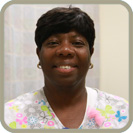 |
Lorna Whittaker is a medical lab technician in the Outpatient Lab, where she does patients’ bloodwork and sends it to be analyzed in other areas of the lab. “The only connection patients have to the lab is through us. I like talking to patients – not a lot of people like having bloodwork done so we’re there to calm them and help them through the process.” | |
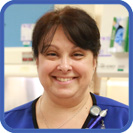 |
Maria Simone is a medical lab assistant in Microbiology, where she receives specimens from other areas of the hospital and makes sure they’re the proper quality for testing. She plants specimens on special plates that are optimized for different types of bacteria to grow so that it can be determined if that bacteria is present in the patient. “I love microbiology and the hands-on work we do here. It’s amazing what microbiology shows you.” | |
 |
Sarah Kim is a point-of-care technical specialist, meaning she oversees tests that happen outside of the lab (i.e. at patient bedsides). With more than 182,000 point-of-care tests at St. Joe’s every year, she’s busy. “My job is to make sure all point-of-care testing is being done with the same quality as in the lab. I like it because it connects me with staff around the hospital and I’m always learning, even after 12 years here.” | |
| Dr. Maria Pasic is a clinical biochemist at St. Joe’s who has developed a vision to create a centre of excellence in immunological disorders. These occur when the body begins to attack itself in conditions such as rheumatoid arthritis. “Our teams are doing amazing work in this area,” said Dr. Victor Tron, joint chief of Laboratory Medicine. “A centre of excellence would make this lab a go-to resource for hospitals across Canada.” | ||
St. Michael’s:
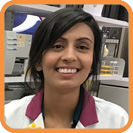 |
Hina Chaudhry is a medical technical specialist in the Special Coagulation Laboratory, overseeing testing, making sure instruments are working properly and giving residents a behind-the-scenes look at what her team does. “I enjoy coming to work because I know that what I’m doing is making a difference in patients’ lives, so it’s very rewarding.” | |
| Meghan Cuthbertson is a medical laboratory technician who has a unique role, both collecting patients’ bloodwork in Phlebotomy and then processing and registering samples in the Core Lab so they can be analyzed. “The good part about working in both areas is you get to build a relationship with patients and you’re also part of their diagnosis and treatment plan – it’s really satisfying to see their whole journey.” | ||
| Vidya Beharry is a medical laboratory technologist who works in the Immunohistochemistry Lab where markers are identified to diagnose cancerous tumours. “What we do is a continuous process – there’s always something to tweak. I make sure I stay up to date on current practices so that we can continue to evolve and get better.” | ||
| The microbiology team of Drs. Larrisa Matukas, Manal Tadros, Ramzi Fattouh and Yan Chen specializes in diagnosing infectious disease, and has been working across both sites developing an integrated vision to assist with the multitude of infections that occur in busy hospitals. “We know that every one hour delay in diagnosing a septic patient results in a seven per cent increase in mortality, so what they’re doing is absolutely critical,” said Dr. Tron. | ||
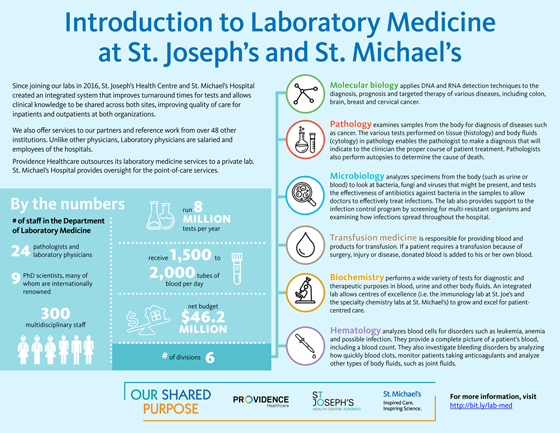
Click here or on the image above for a larger version of the infographic.
About St. Michael’s Hospital
St. Michael’s Hospital provides compassionate care to all who enter its doors. The hospital also provides outstanding medical education to future health care professionals in more than 29 academic disciplines. Critical care and trauma, heart disease, neurosurgery, diabetes, cancer care, care of the homeless and global health are among the Hospital’s recognized areas of expertise. Through the Keenan Research Centre and the Li Ka Shing International Healthcare Education Centre, which make up the Li Ka Shing Knowledge Institute, research and education at St. Michael’s Hospital are recognized and make an impact around the world. Founded in 1892, the hospital is fully affiliated with the University of Toronto.
